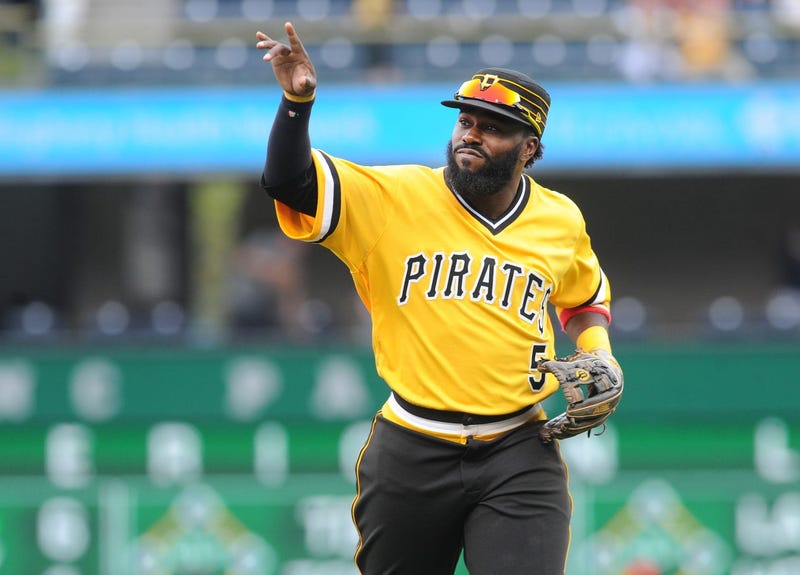
For the past seven seasons, Josh Harrison wore No. 5 for the Pirates. That number wasn't available when he signed last week with the Tigers, retired since 1983 in honor of Hank Greenberg. In fact, just two single-digit numbers were left for Harrison to choose from: 1 and 0.
The Tigers asked him which one he'd prefer. For Harrison, it was an easy call.
"I grew up wearing No. 1. And for me, I was like, man, I remember I used to play a game on SEGA called Sports Talk Baseball, and Detroit was my favorite team because they had a pretty good hitting squad. Cecil Fielder, Mickey Tettleton, Tram, Lou Whitaker, a lot of names, and ironically I remember (Whitaker) was a second baseman that wore No. 1.
So Harrison will be the Tigers' new No. 1, the number Whitaker made famous during his 19-year career in Detroit. (It was most recently worn by Jose Iglesias.) Harrison will do right by Whitaker's legacy. He was a fan favorite in Pittsburgh for his exuberant style of play, which seems to be the norm wherever he goes.
"I don’t want to sound cocky or anything, but everywhere I’ve gone I’ve kind of been a fan favorite," he said. "I play the game hard, I have fun, I enjoy it. I think that’s what draws people to me, is they can tell I truly enjoy what I do and being out on that field. And to go along with that, I can play. I can back it up.
"But I think I give them something different, man. They can truly tell that I love the game. I'm smiling, I’m laughing and I’m out there playing for my teammates and the city."
A two-time All-Star, Harrison signed a one-year, $2 million deal with the Tigers to be the team's everyday second baseman. He admitted he didn't expect to be on the market for so long. It's a good deal for the Tigers, who signed Harrison's longtime teammate and double-play partner in Pittsburgh, Jordy Mercer, earlier this winter.
Harrison and Mercer were part of a baseball revival in Pittsburgh, helping the club to three straight playoff appearances from 2013-15 after a 20-year postseason drought. The Pirates hit the reset button again in 2016. Having been through the process a couple times before, Harrison said the idea of joining a rebuilding team in Detroit wasn't a turn-off.
"No, it’s not anything that I haven’t been presented with before. We were pretty young last year in Pittsburgh," said Harrison. "For me, this was an opportunity, man, to come in and be healthy, play second base every day. Got a good friend of mine in Jordy, who I talked to throughout the process, and he’s like, 'Man, it would be a good fit.'
"At the end of the day, man, it's baseball. You gotta go out and play. I don’t want to say that it swayed me one way or the other because any given day anybody can beat anybody. I don’t really feel like I had to do anything to help anybody. It’s just a matter of being who I am and showing up every day."
For the duration of his Pirates career, Harrison played for a well-liked manager in Clint Hurdle. He said it's too early to try to compare Hurdle to Ron Gardenhire, but his early impressions of his new skipper are positive.
"From the minute that I got here he seemed genuine, and that’s all I can ask for, is a guy that wants you to go out, be you and have fun and play. I think that’s something that goes a long way in this clubhouse," Harrison said.
Other highlights from Harrison's interview on 97.1 The Ticket:
